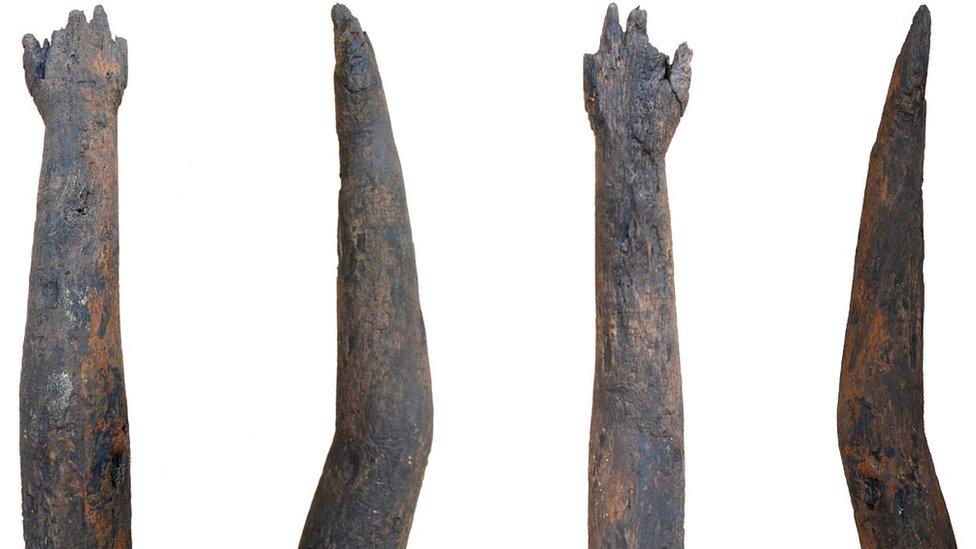HS2: Decapitated skeletons found near Aylesbury
- Published
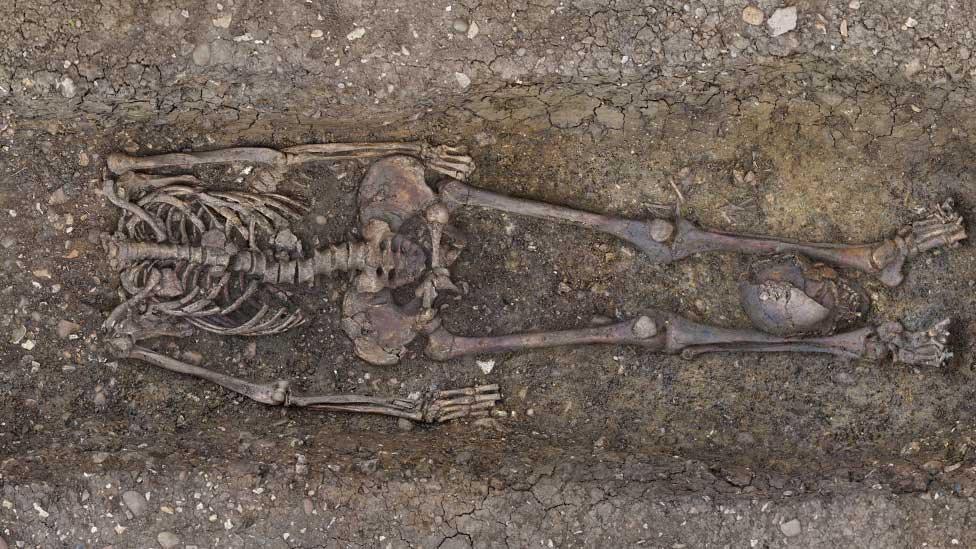
About 10% of the skeletons found in the late Roman cemetery were decapitated
Decapitated skeletons, brooches, spoons, coins and tableware have been found in an archaeological dig that uncovered part of a Roman town.
The excavation at Fleet Marston, near Aylesbury, took place as part of work to create the HS2 high-speed railway, external.
This included the largest Roman cemetery yet to be excavated in Buckinghamshire, with 425 burials.
Archaeologist Richard Brown described the dig as "significant", enabling future study of the town's inhabitants.
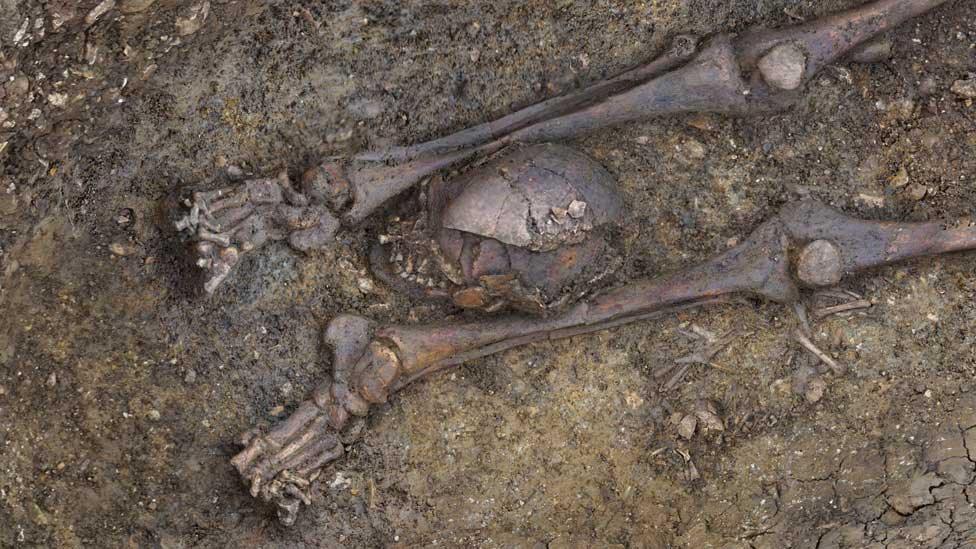
This could be a "normal, albeit marginal, burial rite" - or an indication those decapitated were criminals or outcasts
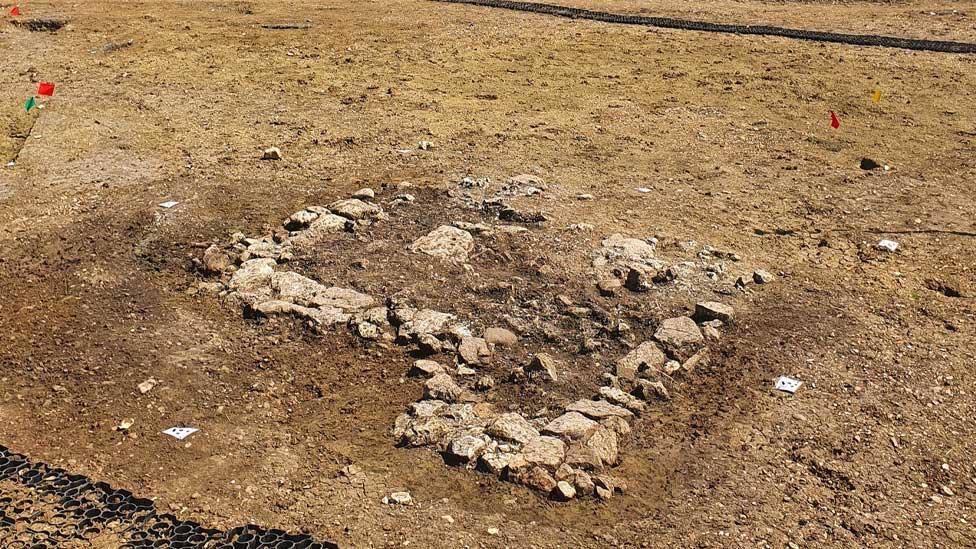
A stone-built corn dryer or malting oven provided evidence of brewing and was located near early Iron Age enclosures
A team of about 50 COPA JV archaeologists, external uncovered a series of enclosures developed on a ladder-like plan on either side of Akeman Street, a major Roman road that linked Verulamium (modern day St Albans in Hertfordshire) with Corinium Dobunnorum (now Cirencester in Gloucestershire).
Several lead weights and more than 1,200 coins were discovered, suggesting the site was used for trade and as a staging post for travellers and soldiers passing along the road to the garrison at Alchester, external.
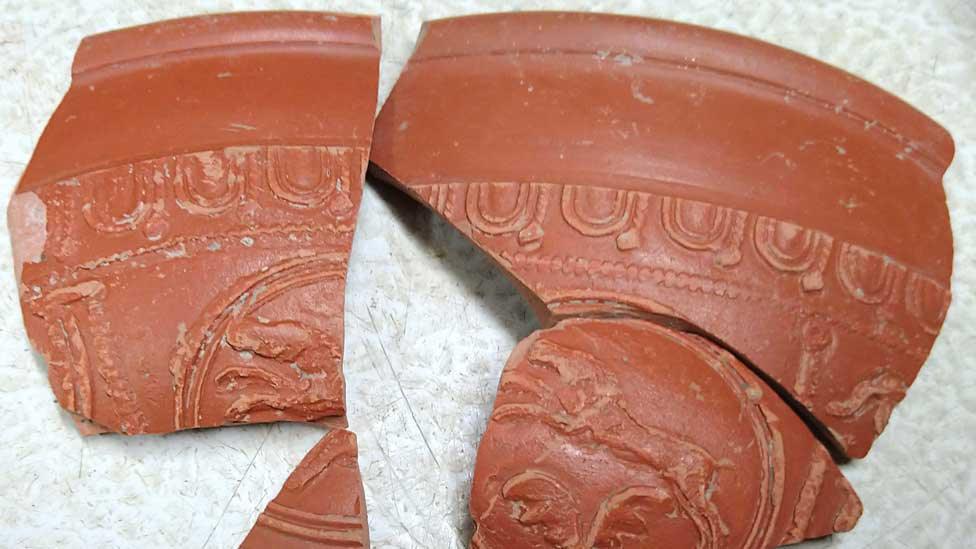
High-quality Samian tableware was unearthed, including one piece stamped with its maker's name - or that of the maker's owner
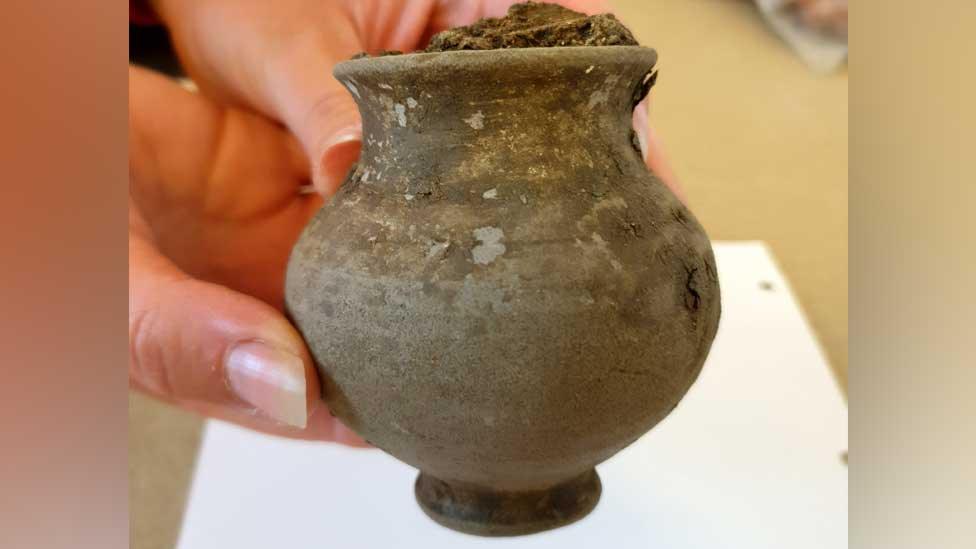
Other domestic pottery found includes a small jug (above) and a ceramic drinking beaker
It is close to the site where a complete Roman egg was discovered during an earlier, unrelated excavation.
Many domestic finds were made, including gaming dice, bells and jars, while a stone-built corn dryer or malting oven provided evidence of brewing.
High quality tableware called Samian pottery and spoons, pins and brooches were also unearthed.
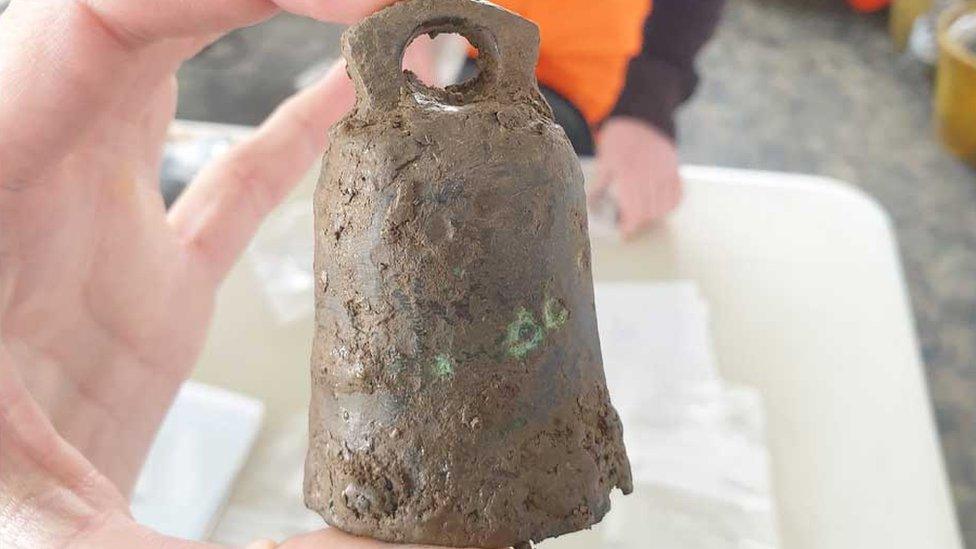
This bell could have been used in Roman rituals
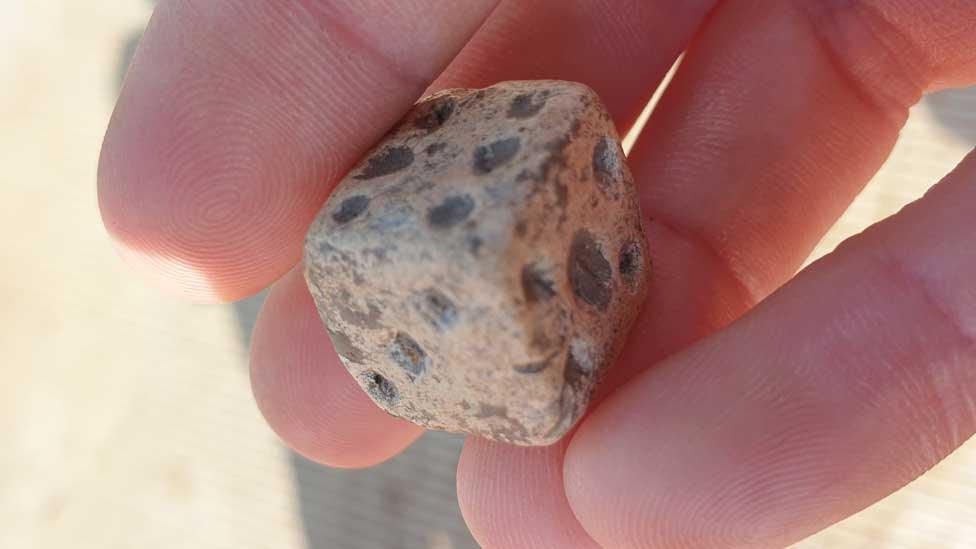
The lead die provides evidence of gambling
About 10% of those buried in the late Roman cemetery were decapitated, which could be a "normal, albeit marginal, burial rite" - or an indication those decapitated were criminals or outcasts.
Mr Brown, a senior project manager for COPA, said: "The excavation is significant in both enabling a clear characterisation of this Roman town but also a study of many of its inhabitants.
"Along with several new Roman settlement sites discovered during the HS2 works, it enhances and populates the map of Roman Buckinghamshire."
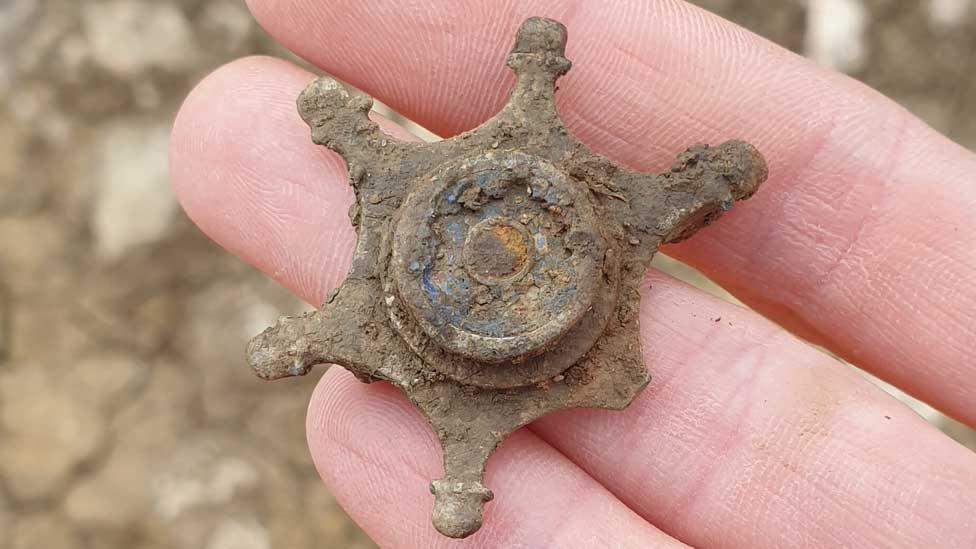
Items for personal wear were unearthed, including this brooch
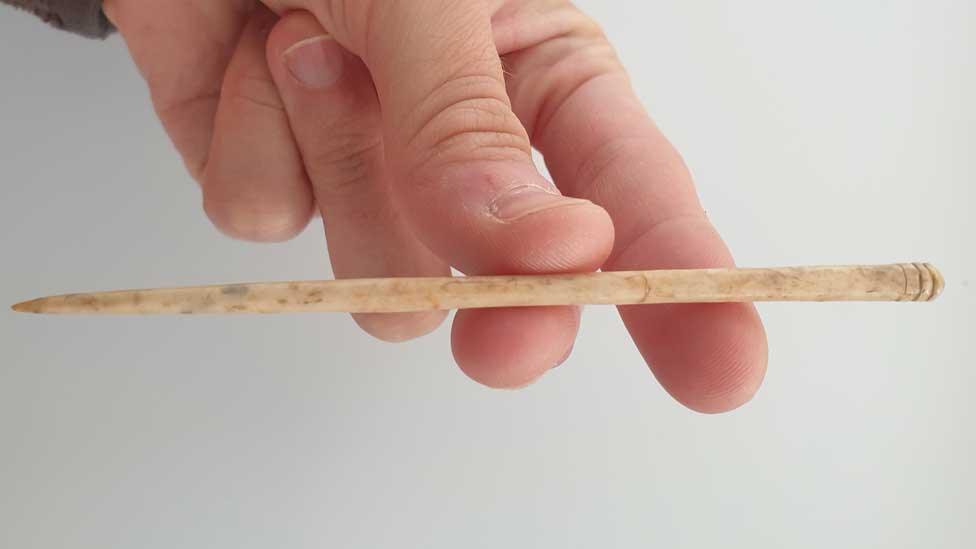
And this finely-carved bone pin
Evidence was also found of large early Iron Age enclosures during the excavation.
Helen Wass, head of heritage at HS2 Ltd, said: "All human remains uncovered will be treated with dignity, care and respect and our discoveries will be shared with the community."
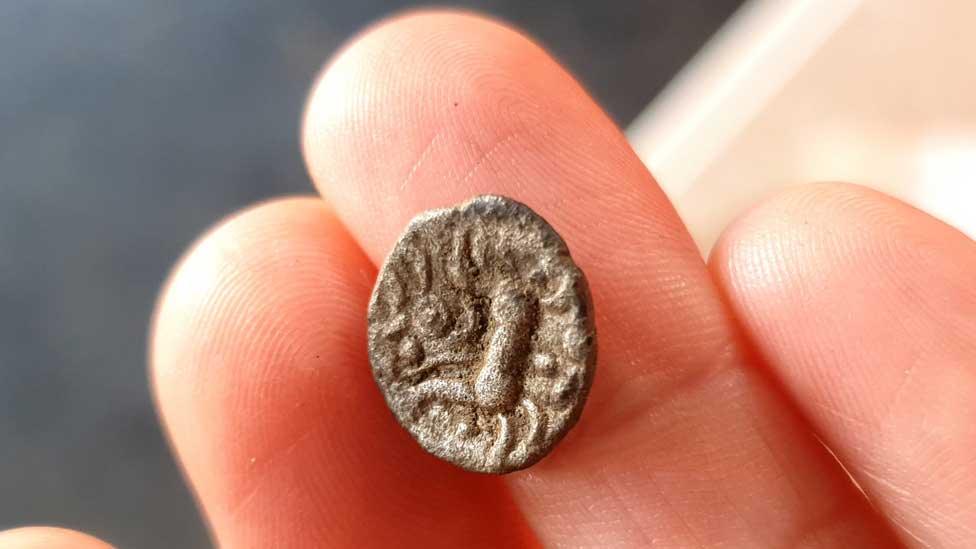
Pre-Roman evidence included this Iron Age coin
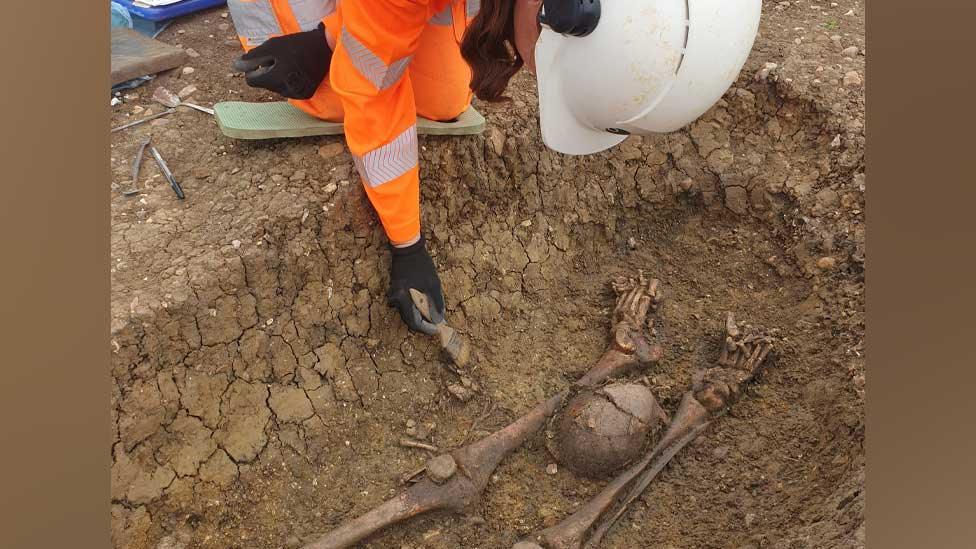
The team of 50 archaeologists worked on the site for more than a year

Find BBC News: East of England on Facebook, external, Instagram, external and Twitter, external. If you have a story suggestion email eastofenglandnews@bbc.co.uk, external
Related topics
- Published13 January 2022
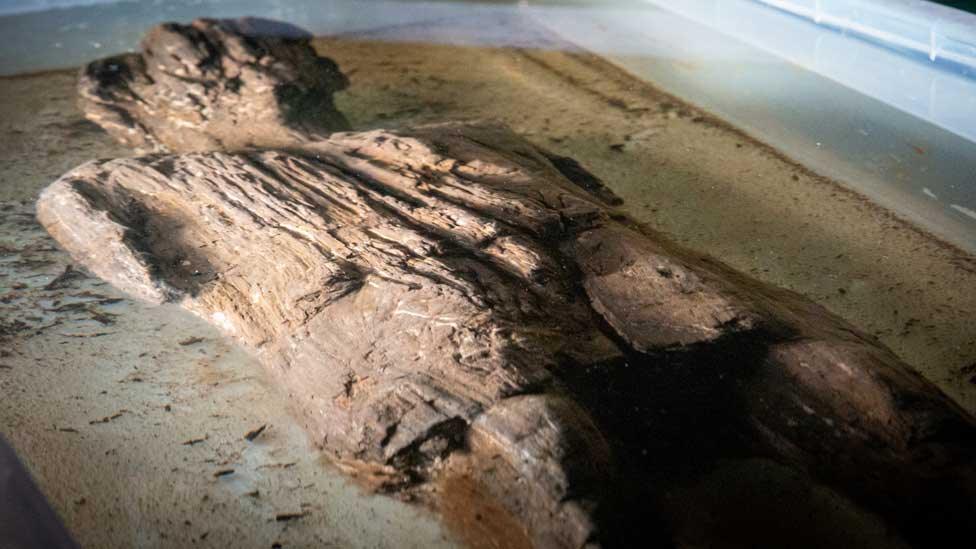
- Published11 January 2022
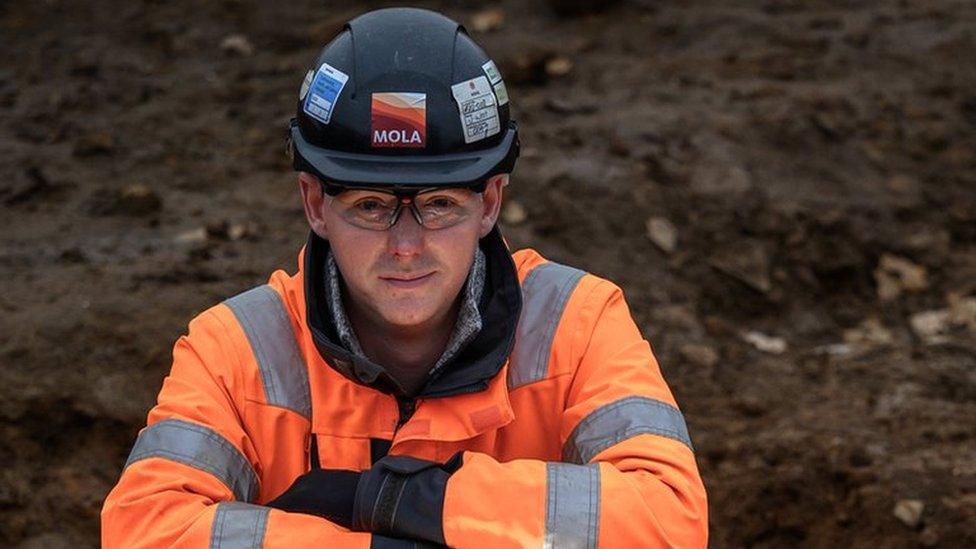
- Published29 October 2021
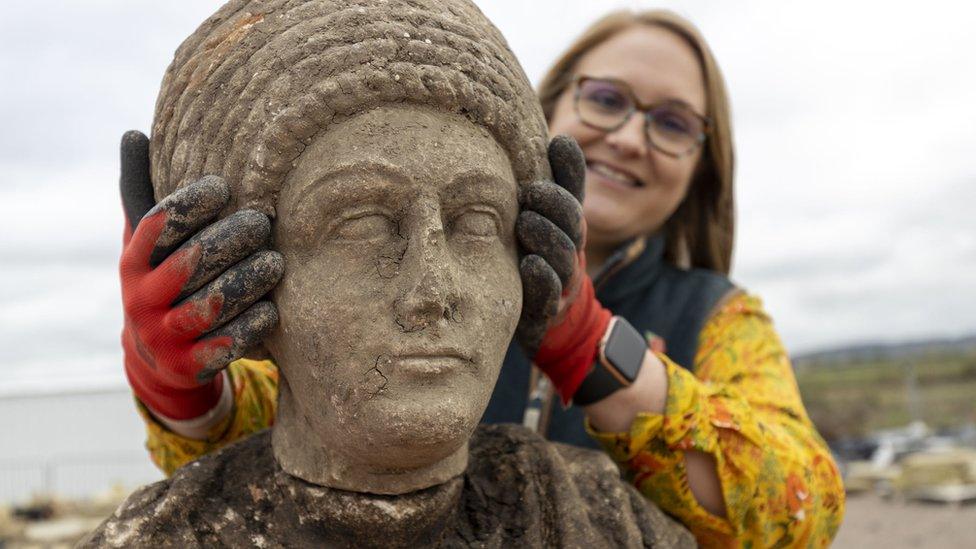
- Published13 September 2020
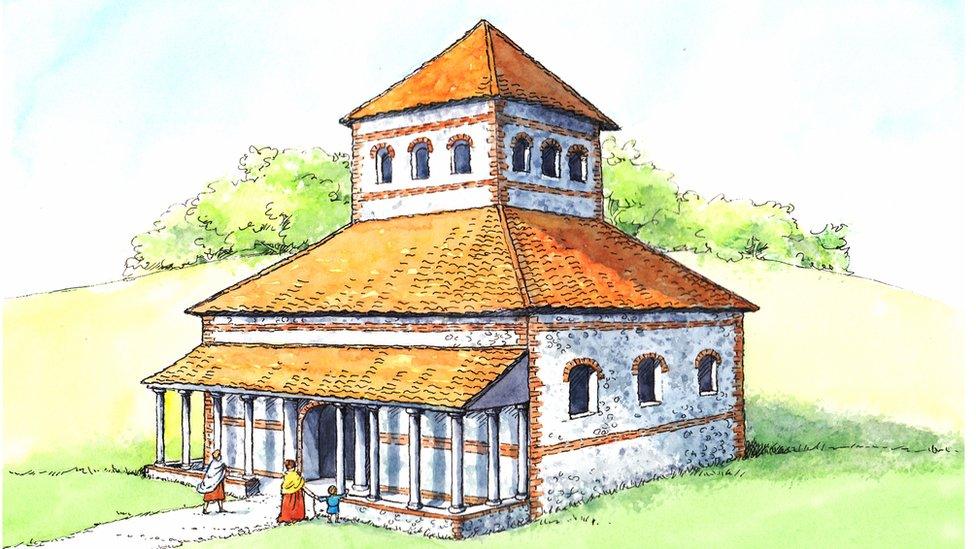
- Published6 December 2019
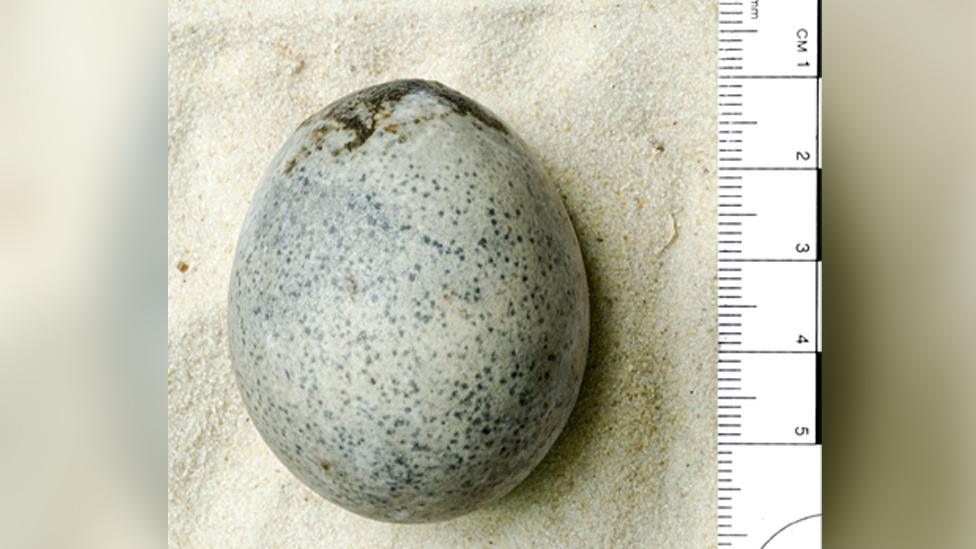
- Published15 July 2019
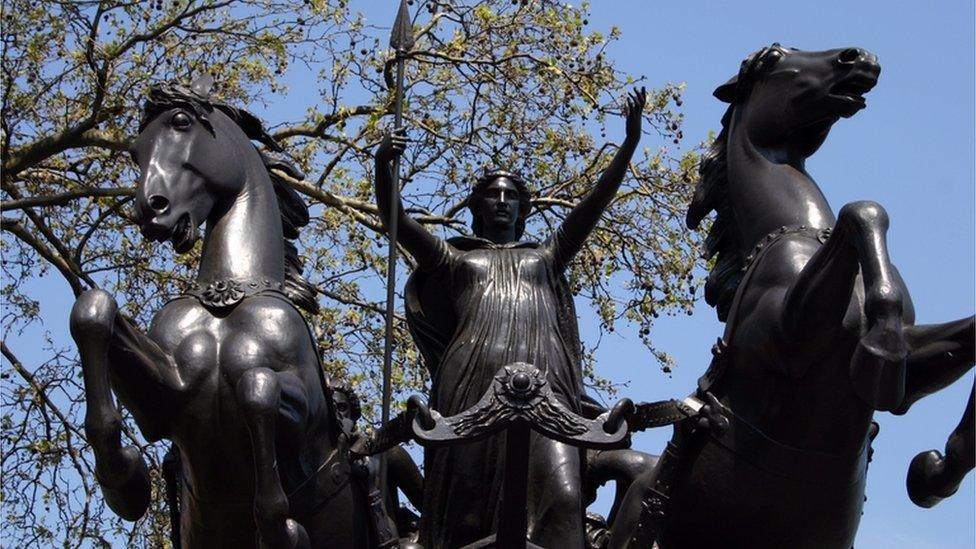
- Published22 June 2019
